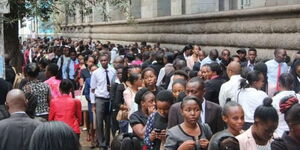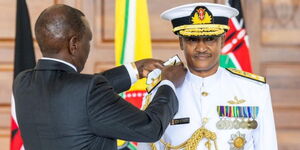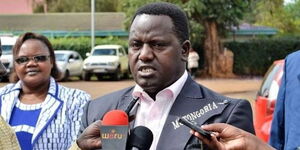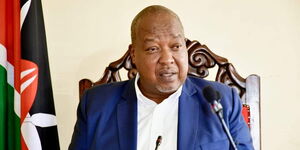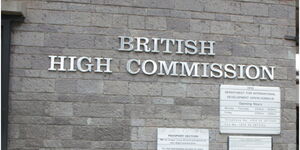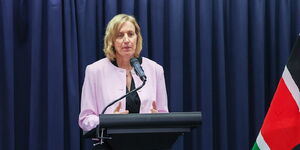National Assembly Majority Leader Kimani Ichung’wah has proposed a reduction in Value Added Tax (VAT) as part of Kenya's tax policy adjustments, amidst debate over President William Ruto's bid to increase the tax-to-GDP ratio.
In an interview on KTN News on Wednesday, May 13, Ichung’wah, who has a background in accounting, recommended slashing the current VAT rate from 16 per cent to 15 per cent.
He argued that such a move, coupled with the elimination of tax exemptions on VAT and zero-rated items, could enhance revenue collection for the government.
Ichung’wah argued that reducing the VAT rate could potentially lead to increased tax revenues. He emphasised the need for strategic fiscal measures to boost revenue without overburdening taxpayers.
He stated, “If you were to ask me if we were to reduce even the standard VAT rate from 16 per cent to about 15 per cent, then do away with all the tax exemptions on VAT and zero-rated items. We would collect more money.”
The proposed adjustments come in the wake of the Finance Bill 2024, which aims to introduce VAT, raise excise taxes on various items, including M-Pesa transactions, airtime, and bank transfers. The government seeks to generate an additional Ksh323 billion in taxes for the upcoming financial year.
Additionally, the cost of mobile money transfers, airtime, and data is set to rise with proposed additional taxes on these services.
The Finance Bill also aims to revoke VAT exemptions on various financial services and betting, gaming, and lottery services, subjecting them to the standard VAT rate.
Ichung’wah criticised the current tax system, highlighting its disproportionate impact on the middle class. He argued that tax refunds predominantly benefit affluent Kenyans, leaving rural communities at a disadvantage.
"We are basically subsidising life for the middle-class, well-to-do Kenyans and we are getting tax refunds on consumables or consumer items that are being consumed by the middle-class Kenyans at the expense of the poor folk up country who have their breakfast of tea, who buy milk from their next door neighbour or milk from their farm," he argued.
Defending the government's goal of increasing taxes to 22 per cent of GDP, Ichung'wah emphasized that such a transition would occur gradually over three to four years.
He stressed that augmenting revenue as a percentage of GDP requires sustained effort and cannot be achieved overnight.


